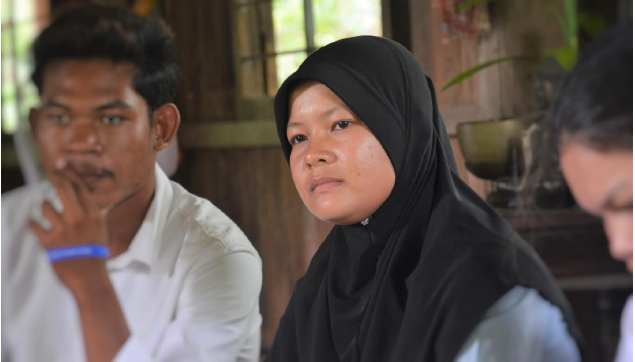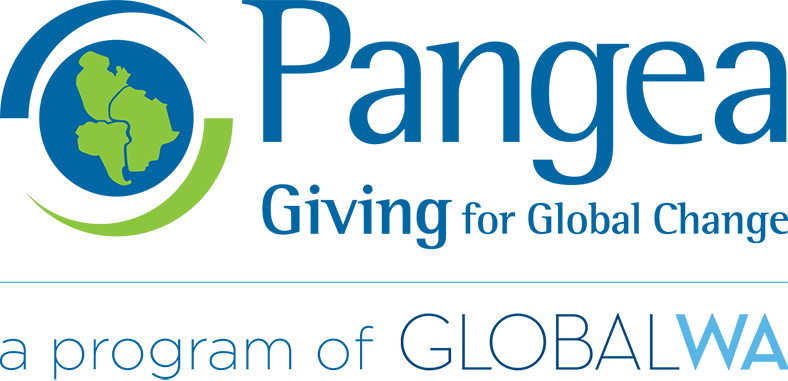Fatilah learns to listen: a story of change from Women Peace Makers of Cambodia
Fatilah, 20, is from Daun Toak commune, Sangkat Trery Koh district in Kampot province. She self-identifies herself as Khmer-Islam who studies at a university in her provincial town.

personal experience and deep reflection about her fieldwork using Facilitative
Listening Design (FLD). Photo by: Lyhour Heang
As much as rumors destroy one’s reputation, preconceptions can also play a crucial part in affecting one’s belief about something or someone. It critically shapes the judgement of a person before he or she even gets to know what lies within. As a Khmer-Islam, Fatilah grew up hearing people’s negative opinions on Vietnamese, particularly being around her family and community. Those opinions, the daily environment, re-telling of history and ongoing media seemed to continue stirring up anti-Vietnamese sentiment within her. She held onto strong stereotypes about Vietnamese.
A listening project of WPM, called From Center to Periphery, led Fatilah into a journey of transformation. She was selected to be one of the “Listeners” and trained to carry out WPM’s homegrown Facilitative Listening Design (FLD) approach as well as gaining skills in conflict transformation and communication in order to set out upon a mission to engage with different communities and talk to diverse people about their views on Cambodian-Vietnamese relations. It was interesting for her to have a chance to talk to “the Other”, or those outside of her community who she sees as completely different. Her experience in the fieldwork and in group discussions with other Listeners allowed her to reflect on her own perception.
Surprisingly, what brought her to a closer and deeper understanding on this issue is when she found out that one of her friends, a fellow Listener who she thought was Khmer, was in fact also ethnic Vietnamese. “I have known her for quite a long time. We get along very well and I had no idea that she is half-Vietnamese. That’s why I have this feeling of shock and confusion” said Fatilah “I didn’t talk to her for a few days when I found out about her identiy. How could I have a Vietnamese friend? But she is my best friend. After deeply thinking about it, I realized that I should not allow our ethnic differences to divide our friendship. Because I am also different from the Khmer majority.” Fatilah said. This personal experience helped her to open her heart to others and embrace differences, potentially break the prejudice cycle in her community.
Fatilah shows that personal experience deeply influences the way one sees and treats the Other. As in her case, once Fatilah realized that she has been friends with a half-Vietnamese girl, she no longer allowed structural negative perceptions to resurface again. Yet, she emphasizes that she still believes that no one is perfect, and that people can be good and bad in any group.
Read stories from other beneficiaries of Women Peace Makers program here.
